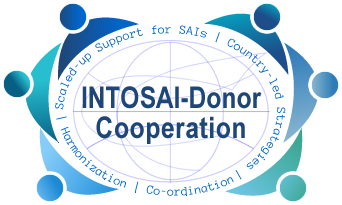IDI/ASOSAI Programme on Development and Implementation of Strategic Plan 2011-2012
There is increased recognition of the fact that SAI owned Strategic and Operational Plans are an important prerequisite for effective capacity development. There has consequently been an increasing demand from developing country SAIs for support in developing strategic plans as an instrument to develop the SAIs. Following successful programmes in other regions, and the development of a Strategic Planning Handbook which has been revised and translated from English into Arabic, French and Spanish, four new Strategic Planning Programmes were launched in 2011, including both a needs assessment and an operational planning component. In CREFIAF, where the 2010 SAI Stocktaking demonstrated that virtually no SAIs had such plans in place, two parallel programmes were initiated in 2011. The programme was also launched in ASOSAI and OLACEFS in 2011. The Strategic Planning programmes will be evaluated from 2014 to get insight in the achievements of the programmes and to what extent strategic and operational planning practices has been institutionalized in the participating SAIs.
Expected outcomes:
1. Number of SAIs that formally adopt the strategic plan developed as a part of the programme
2. Number of SAIs that implement the operational plan in the first year
3. Number of SAIs that institutionalize the strategic planning process in their SAIs
Lessons learnt:
• Basing the needs assessment and strategic plan on a comprehensive capacity building framework works well.
• Including the dimension of culture and encouraging SAIs to look at issues like SAI governance, ethics, accountability and transparency also works well.
• An SAI’s strategic plan can be used as the vehicle for integrating all capacity development efforts of the SAI. e.g. the ISSAI implementation strategy should be a part of the overall strategic plan.
• Allowing SAIs to bring one interpreter allows us to involve relevant persons from SAI management despite language issues.
• SAIs need more support when they carry out needs assessments and strategic planning. We have been unable to provide this on the job support to the SAIs.
• Implementation of the strategic plan will require linking up the IDI process with other cooperation partners that can help or are helping the SAI. We need to provide for a structured dialogue with relevant partners and the SAI so that parallel processes are not run in the SAI.
SAIs connected to this project
- Afghanistan
- Bangladesh
- Cambodia
- Laos
- Mongolia
- Philippines
- Viet Nam
